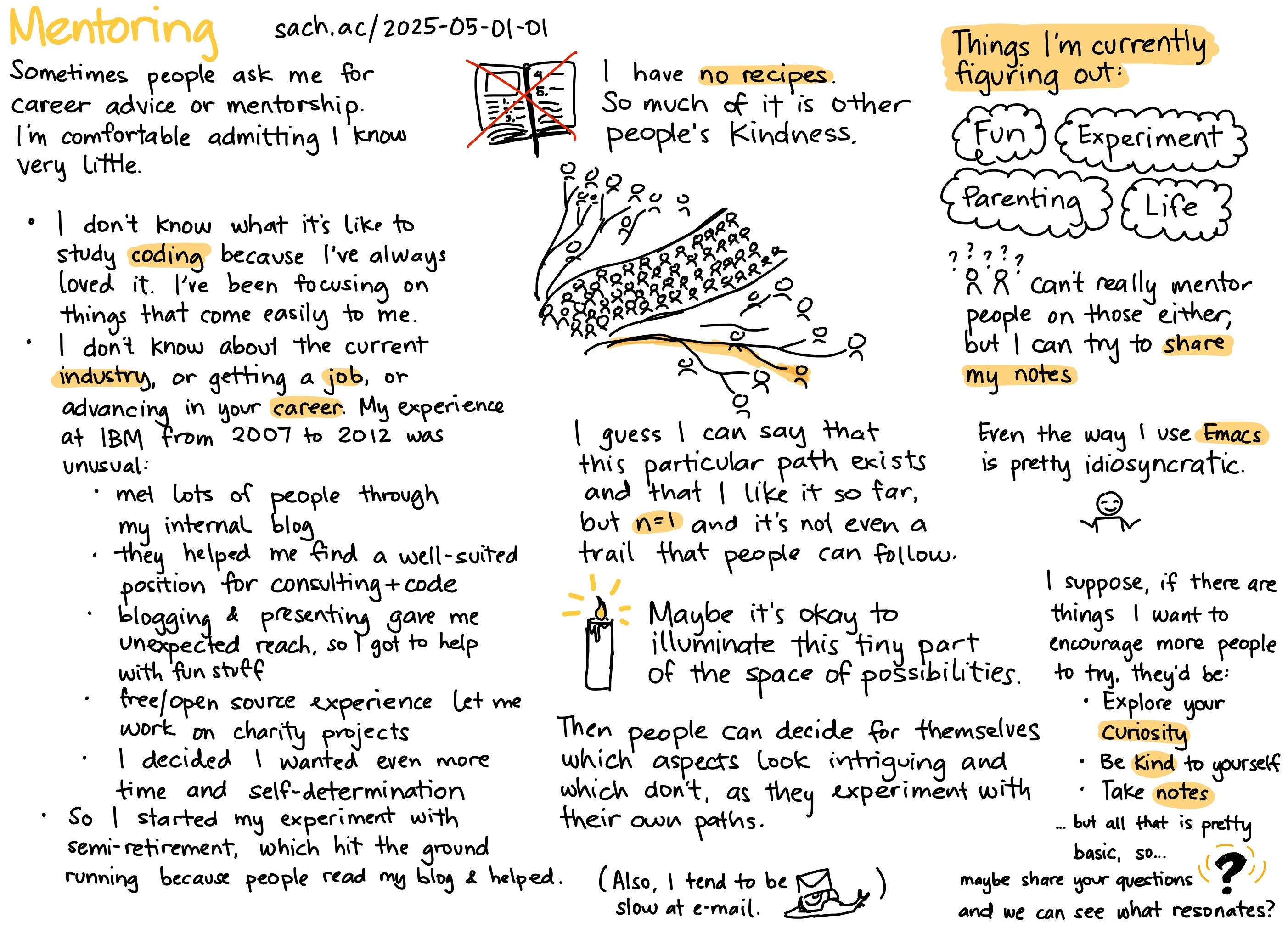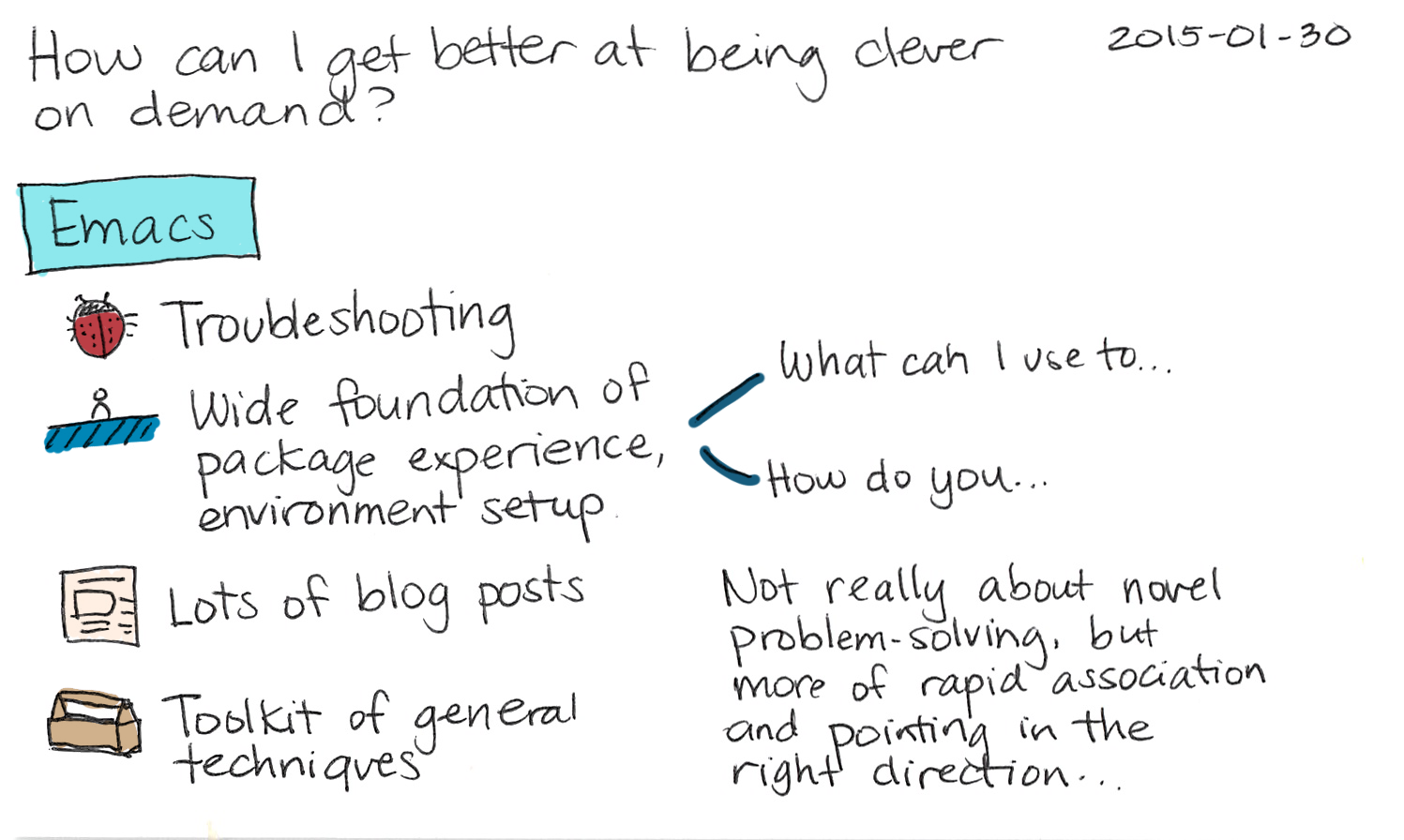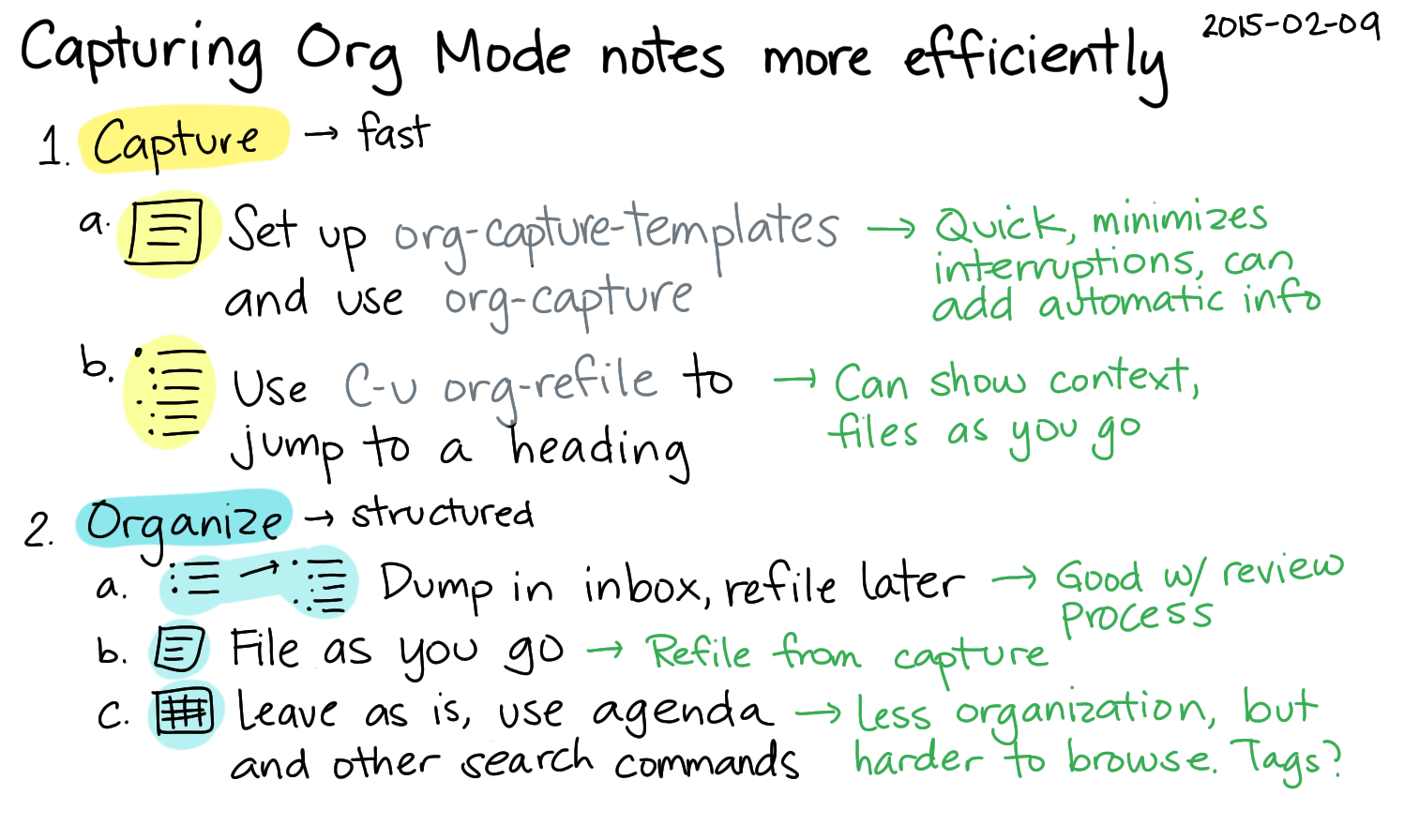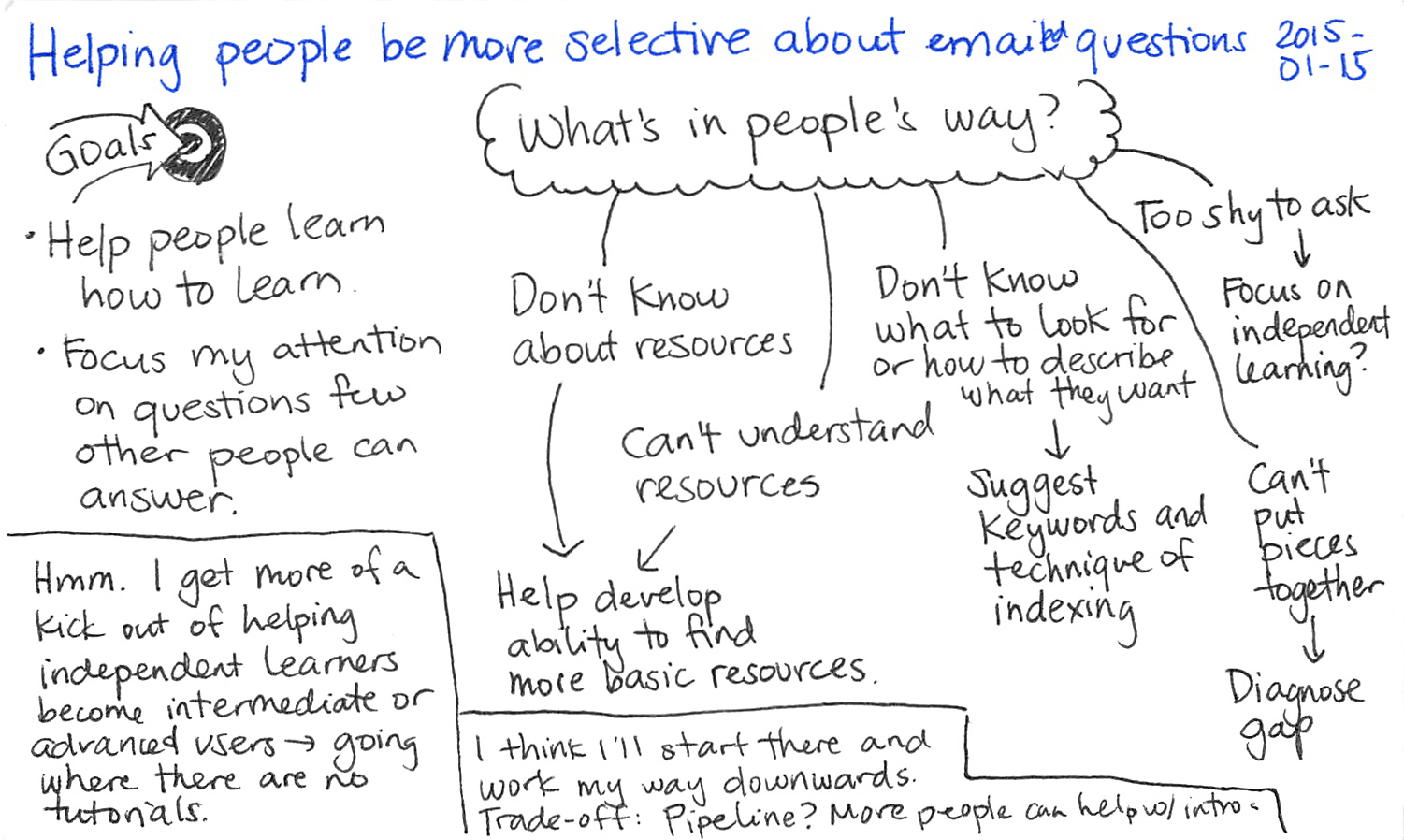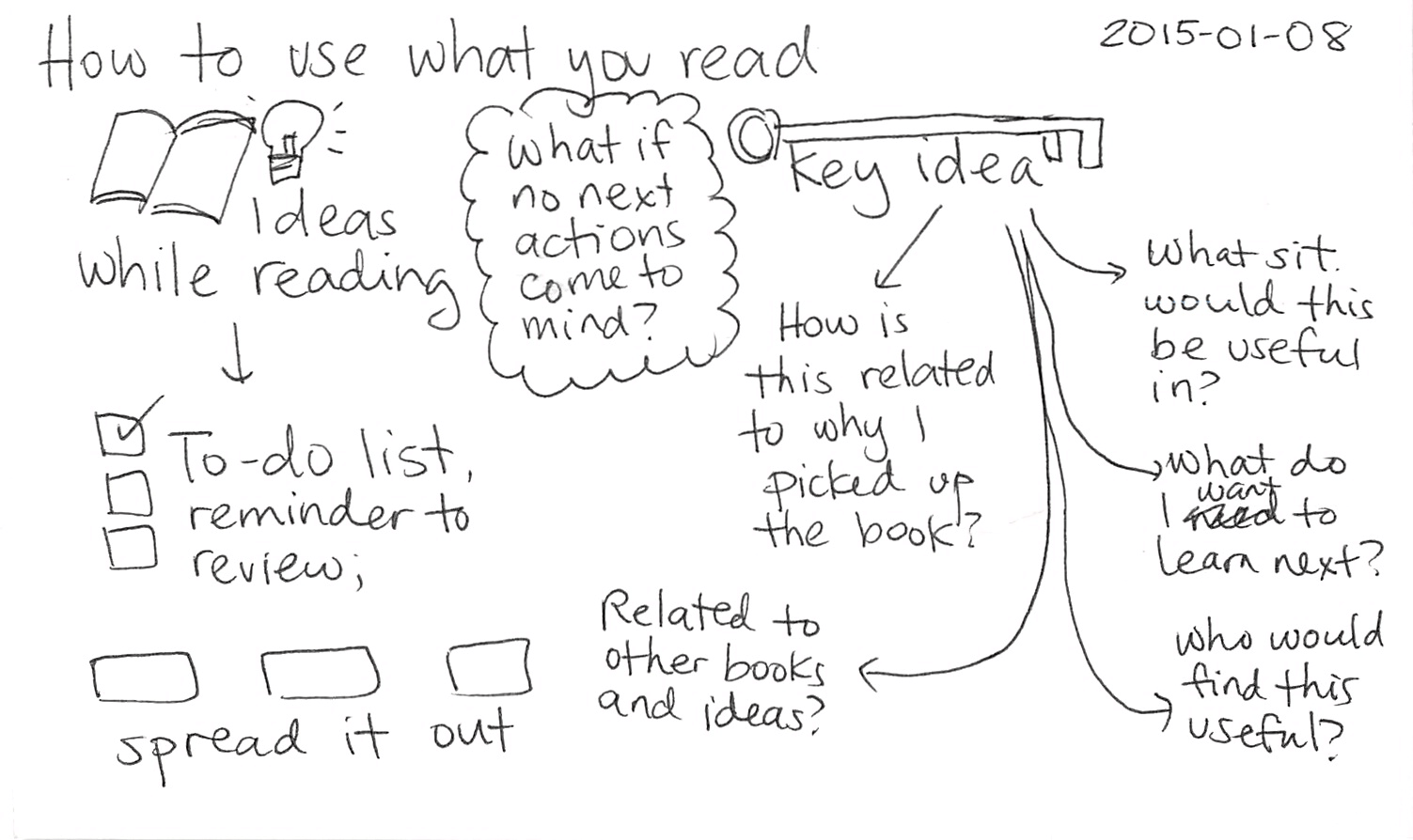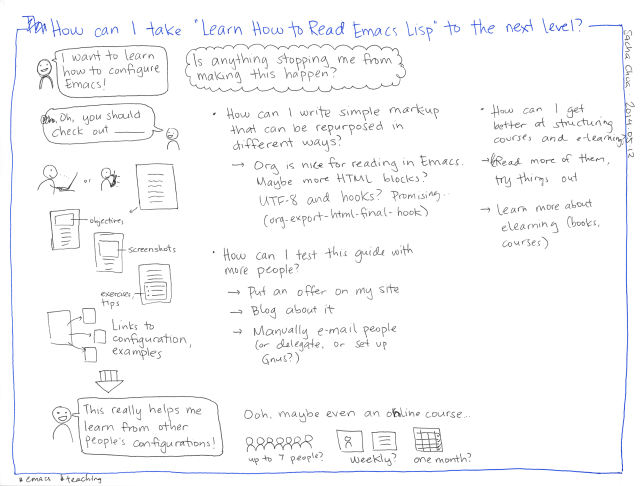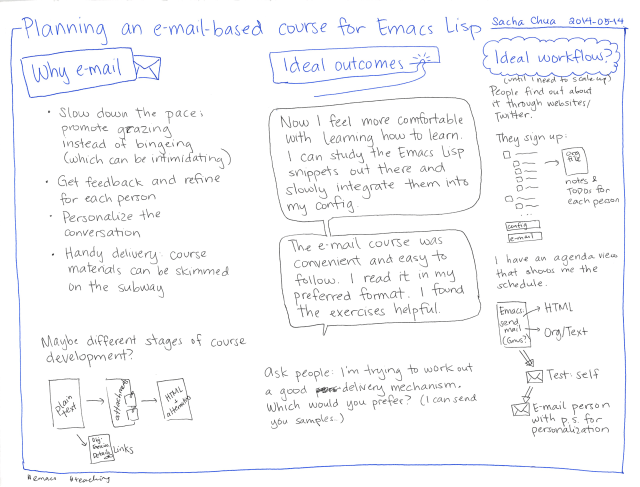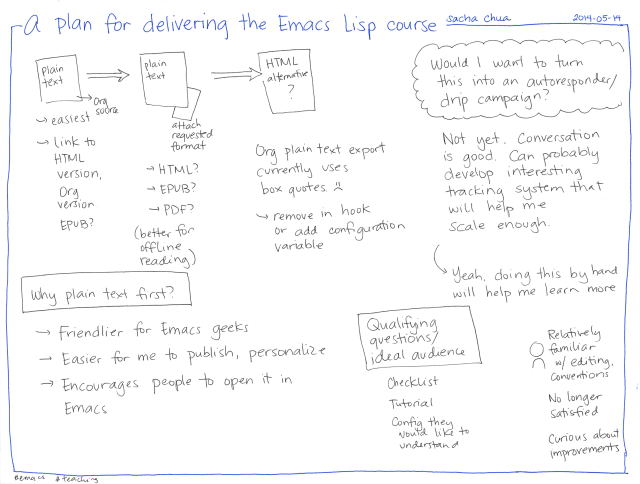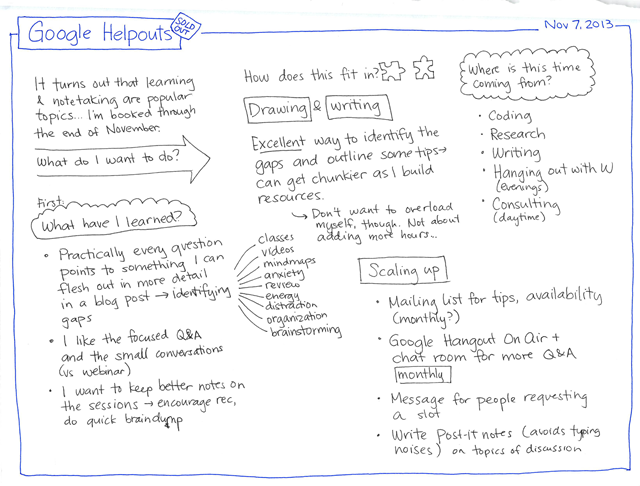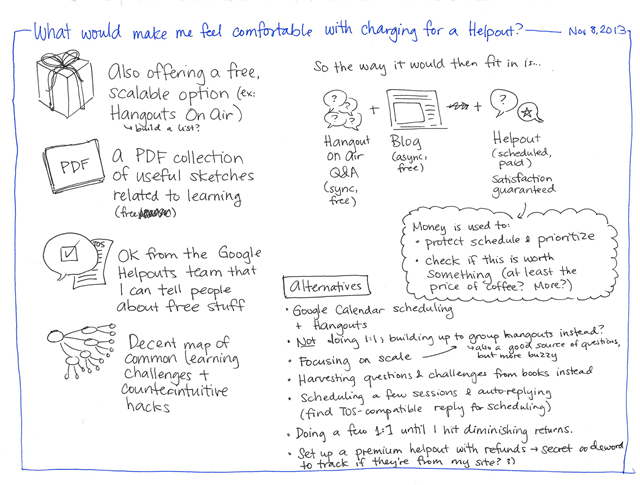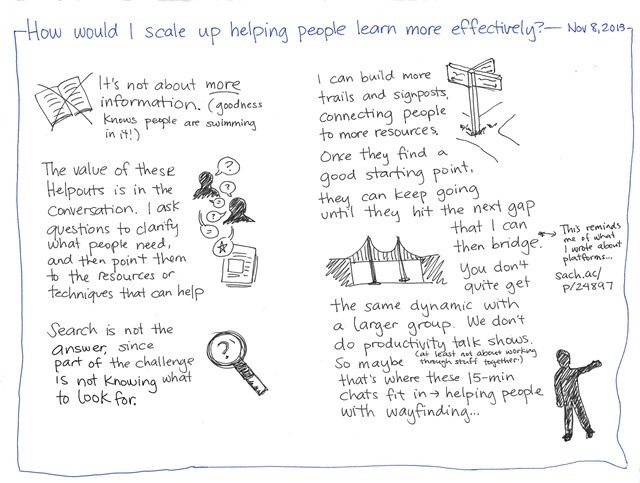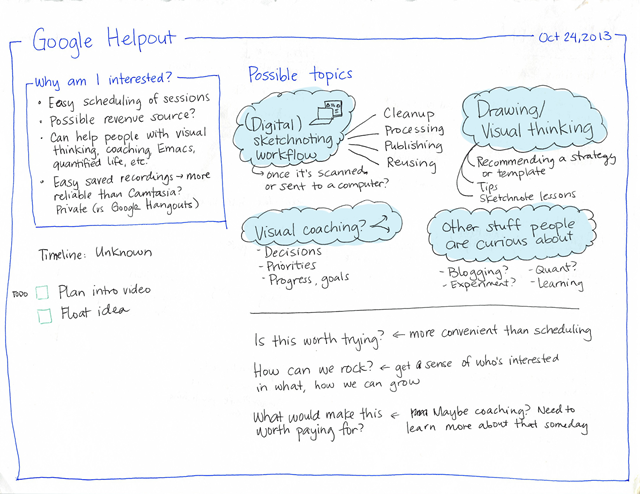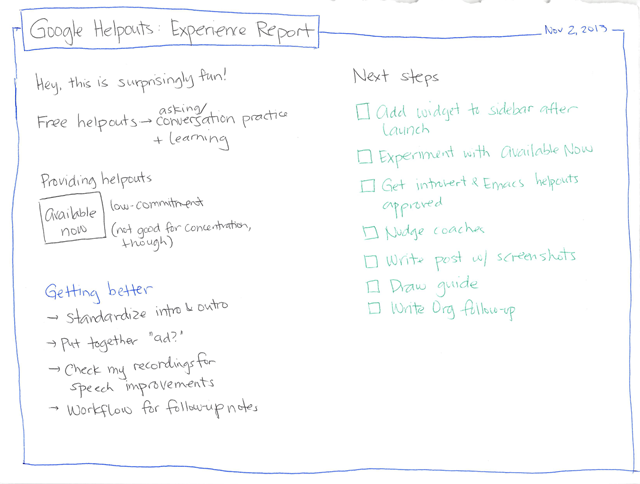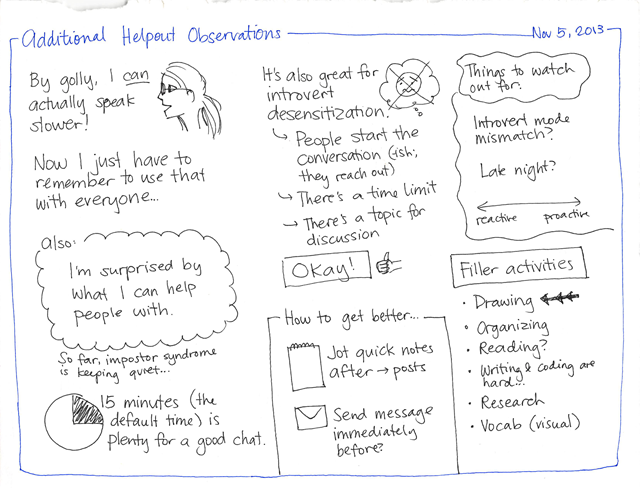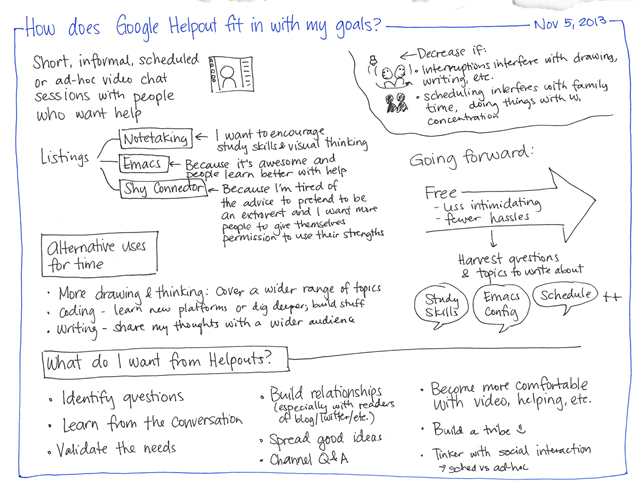Mentoring
| teaching
Text from sketch
Mentoring https://sach.ac/2025-05-01-01
Sometimes people ask me for career advice or mentorship. I'm comfortable admitting I know very little.
- I don't know what it's like to study coding because I've always loved it. I've been focusing things that come easily to me.
- I don't know about the current industry, or getting a job, or advancing in your career. My experience at IBM from 2007 to 2012 was unusual:
- met lots of people through my internal blog
- they helped me find a well-suited position for consulting + code
- blogging & presenting gave me unexpected reach, so I got to help with fun stuff
- free/open source experience let me work on charity projects
- I decided I wanted even more time and self-determination
- So I started my experiment with semi-retirement, which hit the ground running because people read my blog & helped.
- I have no recipes. So much of it is other people's kindness.
- I guess I can say that this particular path exists and that I like it so far, but n=1 and it's not even a trail that people can follow.
- Maybe it's okay to illuminate this tiny part of the space of possibilities. Then people can decide for themselves which aspects look intriguing and which don't, as they experiment with their own paths.
- (Also, I tend to be slow at e-mail.)
- Things I'm currently figuring out:
- Fun
- Experiment
- Parenting
- Life
- ? can't really mentor people on those either, but I can try to share my notes
- Even the way I use Emacs is pretty idiosyncratic.
I suppose, if there are things I want to encourage more people to try, they'd be:
- Explore your curiosity
- Be kind to yourself
- Take notes
… but all that is pretty basic, so… maybe share your questions and we can see what resonates?
I like good questions, especially ones that bounce around in my head and nudge me to write or draw or code. Occasionally I end up pointing people in the rough direction of somewhere they can find their own answers. I'm pleasantly surprised when I can actually answer a question, or when I can make sense of something in the process of putting into words. It can take a while for me to go from the initial stimulus to a post, though. Sometimes it takes a while to link up all the thoughts I want to connect. Sometimes it takes even longer to get around to my e-mail. This particular post evolved from an e-mail I received on April 22, which is relatively fast for me.
I like the side-by-side learning I see in both Emacs meetups and parenting conversations at the playground. It's not so much "This is the right way to do things," it's more like "this is what I've been thinking about lately…" "Oh! Me too! I've been trying …?" "Mmm, what did you think about it?" Learning together, knowing no one's gotten anything fully figured out.
Playground conversations are particularly apt, I think. We're all used to stopping and starting again as our respective kids need cuddles or a snack, and we're used to the way conversations drift and reform.
I also like how blogs work for this because we can muse out loud. There's no pressure on a specific person to reply. It's okay if it takes a while for an idea to bounce back and forth between blogs in conversation. Sometimes other people get drawn into it too. E-mail is a little lower on my priority list. E-mail feels contained and private. It's easily forgotten and lost. At least with blogs, there is that tiny chance someone might stumble across it again and learn more. Might even be me. I've forgotten and re-found a lot of posts.
At 41, I am not very old. I think I know less than I did when I was 30. I have fewer answers. I've traded them for questions, and I like that. I have notes, maybe, and I'm happy to share them. I used to speak at conferences and events, but I don't think that's for me at the moment.
I'm open to other people's questions, like the way someone might look over someone's shoulder and point out this cool thing that the speaker has completely forgotten to explain because they've taken it for granted. If you point something out, I may or may not be able to explain it. But I don't know enough yet to say, "Learn this, and then do this, and then do this, and you'll get to your goal." I am still preoccupied with my tiny life and don't know about much beyond its bounds, but it can be fun to explore its quirks and adjacencies.
The Internet is full of people who will give advice. I've been working on learning how to not give advice. It will be an important skill as A+ grows in independence. It is hard to learn and I want to keep other situations consistent so that I don't get confused. I'd like to eventually get better at active, reflective listening, and then wondering out loud about good questions someone might ask themselves, or sharing observations in a declarative but not didactic sort of way. I don't have the time right now to schedule conversations or be more responsive when it comes to e-mail, as there are other things I want to make time for.
I will probably not make a very good mentor, but maybe people can still wonder out loud somewhere within hearing, and maybe some of those questions will roll around in my brain, pick up related thoughts, and come out as a katamari of ideas.

